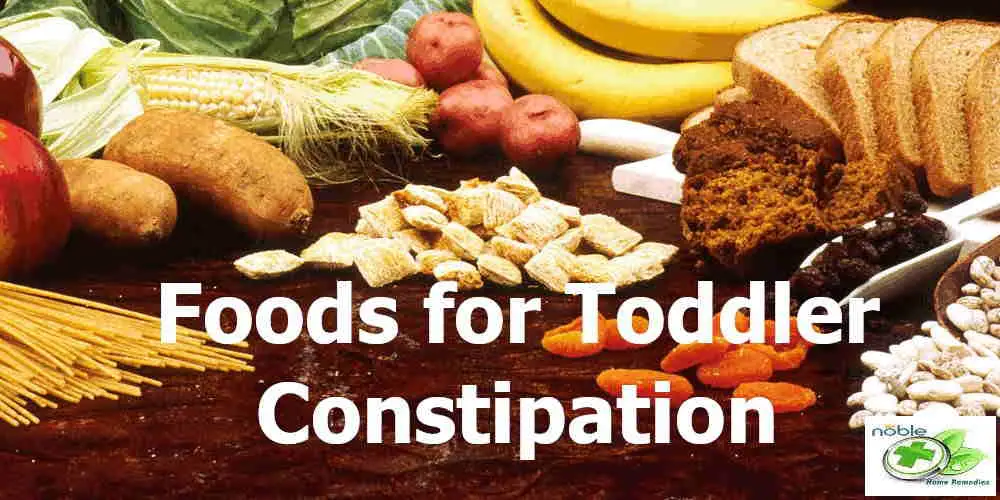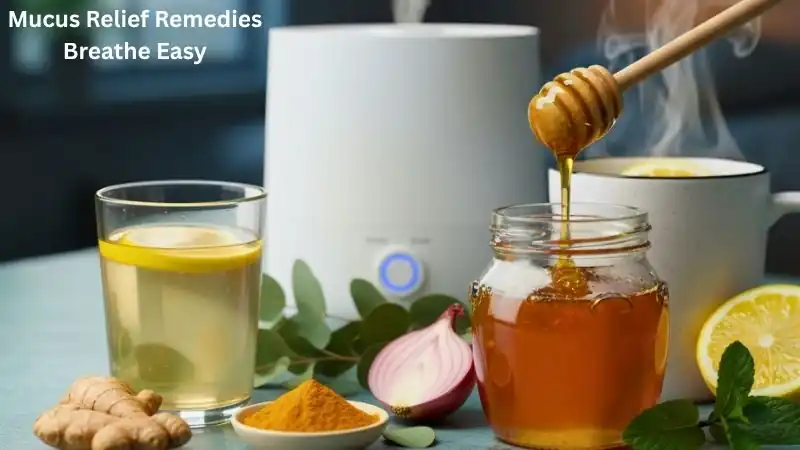Tea Tree Oil for Boils: Get Rid of Painful Bumps in 5 Steps
Are painful bumps on your skin making you uncomfortable? Boils can be irritating and even painful, but fear not! Nature has provided us with a powerful remedy to tackle this common skin issue. In this blog post, we will explore the benefits of using tea tree oil for boils and how it can help you get rid of these bumps the natural way.

Boils are localized skin infections that result from bacteria entering the hair follicles or oil glands. They typically appear as red, swollen bumps that are often filled with pus. Boils can occur on any part of the body including the armpits, inner thighs, and buttocks. Boils can be caused by various factors such as poor hygiene, friction, or a weakened immune system.
When it comes to treating boils, many people turn to natural remedies for their potential benefits. The list of natural remedies for boils includes:
- Epsom Salt for boils
- Warm Compresses
- Tea Tree Oil
- Turmeric for Boils
- Garlic for Boils
- Castor Oil for Boils
- Neem Oil for Boils
- Onion Poultice for Boils
- Apple Cider Vinegar for Boils
- Witch Hazel for Boils
Tea tree oil is one of the treatments that has become increasingly popular. Tea tree oil is derived from the leaves of the tea tree, a native plant of Australia known for its powerful antimicrobial properties.
So, why should you consider using tea tree oil for boils? Not only is it a natural remedy, but it also possesses antibacterial, antifungal, and anti-inflammatory properties that can help combat the underlying causes of boils. Plus, it’s a cost-effective and easily accessible option compared to conventional treatments.
But that’s not all! In this blog post, we will go deeper into how tea tree oil works for boils, provide step-by-step instructions on how to use it effectively and share some additional tips and precautions to ensure safe usage. So, if you’re looking for a natural solution to get rid of painful bumps on your skin, keep reading!
What is Tea Tree Oil?
Tea tree oil is a powerful natural remedy that is derived from the leaves of the tea tree (Melaleuca alternifolia), a small tree native to Australia. The oil is known for its potent antibacterial, antifungal, and anti-inflammatory properties, which make it a popular choice for treating various skin conditions, including boils.
The antibacterial properties of tea tree oil are particularly beneficial for treating boils as they can help combat the underlying bacterial infection that often leads to the formation of boils. The oil contains a compound called terpinen-4-ol, which has been shown to exhibit strong antibacterial activity against a wide range of bacteria, including Staphylococcus aureus, the bacteria commonly associated with boils.
Tea tree oil’s antifungal properties also play a significant role in its effectiveness against boils. Fungal infections can sometimes contribute to the development of boils, and tea tree oil’s antifungal properties can help combat these infections, reducing the risk of boils forming or recurring.
In addition to its antibacterial and antifungal properties, tea tree oil also possesses anti-inflammatory properties. Boils are often accompanied by inflammation, which can cause redness, swelling, and pain. The anti-inflammatory properties of tea tree oil can help reduce inflammation and alleviate discomfort associated with boils.
When using tea tree oil for boils, it’s important to ensure that you are using a high-quality, pure tea tree oil, as some products may be diluted or contain added ingredients that can reduce their effectiveness.
How does Tea Tree Oil work for Boils?

Tea tree oil is a natural remedy that is effective in treating boils due to its powerful antibacterial and anti-inflammatory properties. When applied topically, tea tree oil works in several ways to combat boils and promote healing.
First, tea tree oil acts as a potent antibacterial agent. It can help kill the bacteria that cause boils, including Staphylococcus aureus, which is a common culprit behind these painful bumps. The active compound terpinen-4-ol in tea tree oil has been shown in studies to disrupt the bacterial cell membrane, leading to the death of the bacteria.
In addition to its antibacterial properties, tea tree oil also has anti-inflammatory effects. Boils are often accompanied by inflammation, which can cause redness, swelling, and pain. The anti-inflammatory properties of tea tree oil can help reduce this inflammation and provide relief from the discomfort associated with boils.
Moreover, tea tree oil may also help to prevent the recurrence of boils. By killing the bacteria that cause boils and reducing inflammation, tea tree oil may help to prevent the formation of new boils and promote faster healing of existing ones.
Several studies have supported the use of tea tree oil for treating boils. A study published in the Australasian Journal of Dermatology found that tea tree oil was effective in reducing the size and severity of boils, and was well-tolerated by patients. Another study published in the National Library of Medicine demonstrated the antibacterial activity of tea tree oil against Staphylococcus aureus, further supporting its use for boils.
Overall, tea tree oil is a natural remedy that works by killing bacteria and reducing inflammation, making it an effective option for naturally treating boils. However, it’s important to use tea tree oil properly and consult with a healthcare professional if you have any concerns or underlying health conditions. In the next section, we will discuss how to use tea tree oil for boils safely and effectively.
How to Use Tea Tree Oil for Boils?
Tea tree oil can be used topically to effectively treat boils, but it’s important to use it properly to ensure safety and effectiveness. Follow these step-by-step instructions for using tea tree oil for boils:
Step 1: Dilute tea tree oil – Tea tree oil is highly concentrated and should never be applied directly to the skin. To use tea tree oil for boils, dilute it with a carrier oil such as coconut oil or olive oil. A safe dilution ratio is typically 1-2 drops of tea tree oil per teaspoon of carrier oil.
Step 2: Clean the affected area – Before applying tea tree oil, clean the affected area thoroughly with mild soap and water. Pat dry with a clean towel.
Step 3: Apply diluted tea tree oil – Using a cotton swab or clean fingertip, gently apply the diluted tea tree oil to a boil. Be sure to cover the entire boil and the surrounding area.
Step 4: Leave it on – Allow the tea tree oil to penetrate the skin and work its antibacterial and anti-inflammatory properties. Do not rinse off.
Step 5: Repeat as needed – You can apply diluted tea tree oil to the boil 2-3 times a day, or as directed by your healthcare provider. Be sure to continue the treatment until the boil has healed completely.
Safety Precautions
Always perform a patch test before applying tea tree oil to a larger area of the skin to check for any adverse reactions.
Do not ingest tea tree oil as it can be toxic when ingested.
Keep tea tree oil out of reach of children.
If you experience any severe skin reactions or discomfort, discontinue use and consult a healthcare professional.
Different Application Methods
Topical use: As mentioned above, tea tree oil can be diluted with a carrier oil and applied topically to a boil.
Combination with carrier oils: Tea tree oil can also be mixed with other carrier oils such as coconut oil, jojoba oil, or almond oil for a milder application.
Steam inhalation: Tea tree oil can also be used in steam inhalation for treating nasal or facial boils. Add a few drops of tea tree oil to hot water, cover your head with a towel, and inhale the steam for a few minutes.
Tips and Precautions for Using Tea Tree Oil for Boils
Using tea tree oil for boils can be an effective natural remedy, but it’s important to use it safely and as directed. We will discuss some additional tips and precautions for using tea tree oil for boils:
- Patch Test: Before applying tea tree oil to a larger area of skin, always perform a patch test. Apply a small amount of diluted tea tree oil to a small area of the skin, such as the inside of your forearm, and wait for 24 hours to check for any adverse reactions like redness, itching, or irritation. If you experience any discomfort, discontinue use.
- Avoid Ingestion: Tea tree oil is for external use only and should never be ingested. Ingestion of tea tree oil can cause serious health risks, including nausea, vomiting, diarrhea, and even potentially fatal reactions. Keep tea tree oil out of reach of children and pets, and never use it internally.
- Consult with a Healthcare Professional: If you have a severe boil or if you are pregnant, nursing, or have any underlying health conditions, it’s important to consult with a healthcare professional before using tea tree oil or any other natural remedy. They can provide you with personalized advice and guidance based on your specific situation.
- Potential Side Effects and Allergies: Although tea tree oil is generally considered safe when used properly, some people may experience side effects or allergic reactions. Common side effects may include skin irritation, redness, and itching. If you experience any severe or persistent side effects, discontinue use and seek medical attention.
- Dilution and Application: Always dilute tea tree oil with a carrier oil before applying it to the skin, as undiluted tea tree oil can be too strong and may cause skin irritation. Follow the recommended dilution guidelines (1-2 drops of tea tree oil per teaspoon of carrier oil) and use a cotton swab or clean fingertip to apply it gently to the boil and the surrounding area. Avoid using tea tree oil on broken or open skin.
- Store Properly: Store tea tree oil in a cool, dark place away from direct sunlight and heat. Keep the bottle tightly closed to prevent oxidation and degradation of the oil.
Tea tree oil can be an effective natural remedy for treating boils, but it’s important to use it safely and with caution. Follow these tips and precautions to ensure proper use and consult with a healthcare professional if needed.
Where to Buy Tea Tree Oils for Boils?
You may buy locally from your regular pharmacies. The ideal choice could be to buy online which allows you to choose your preference. Here is the link from Amazon for you to choose from:
Disclaimer: This post is reader-supported. It has affiliate links at no cost to you. I may earn a small commission at no cost to you.
Other Natural Remedies for Boils
In addition to tea tree oil, there are several other natural remedies that can complement its use in treating boils. These remedies can be used in combination with tea tree oil to help alleviate the pain and discomfort associated with boils and promote healing. Here are a few examples:
- Warm Compresses: Applying a warm compress to the affected area can help reduce inflammation and promote the drainage of the boil.
- Turmeric: Turmeric is a well-known spice with powerful anti-inflammatory and antibacterial properties. It can be used topically as a paste or taken internally to help boost the immune system and reduce inflammation.
- Garlic: Garlic is another natural remedy with antibacterial properties that can help in treating boils.
- Onion Poultice: An onion poultice is a simple yet potent home remedy for addressing the discomfort and pain associated with boils.
- Baking Soda: Baking soda’s anti-bacterial and anti-inflammatory properties are effective in healing boils.
It’s important to note that while these natural remedies can be effective for some people, the results may vary. It’s always a good idea to consult with a healthcare professional before using any natural remedy, especially if you have any underlying health conditions or if you’re pregnant or nursing.
Takeaway: Get Rid of Painful Boils the Natural Way with Tea Tree Oil
Tea tree oil is a natural remedy that has been shown to possess antibacterial, antifungal, and anti-inflammatory properties, making it an effective option for treating boils.
Using tea tree oil for boils can help reduce inflammation, fight off bacteria, and promote healing without the use of harsh chemicals or antibiotics. Here are some key takeaways:
- Natural and Safe: Tea tree oil is a natural option for treating boils, which can be a painful and uncomfortable condition. It does not contain any harsh chemicals or antibiotics, making it a safer choice for those who prefer natural remedies.
- Effective Properties: Tea tree oil’s antibacterial, antifungal, and anti-inflammatory properties can help to combat the infection causing the boil, reduce inflammation, and promote healing. It can be applied topically and used in combination with carrier oils for safe and effective use.
- Considerate Precautions: It’s important to follow proper dilution guidelines, perform patch tests, and consult with a healthcare professional if needed, especially if you have any underlying health conditions or allergies. It’s also crucial to avoid ingestion of tea tree oil as it can be toxic.
Tea tree oil can be a natural and effective remedy for treating boils. Its antibacterial, antifungal, and anti-inflammatory properties can help to alleviate the pain and discomfort associated with boils and promote healing. Remember to use tea tree oil safely and consult with a healthcare professional if needed. Give tea tree oil a try and experience its benefits in getting rid of painful bumps naturally!
Trust in your purchase:
Every product featured on our site has been carefully researched and selected based on quality, customer ratings, and positive reviews to ensure you receive excellent value for your money.
Please note:
This post contains affiliate links. If you make a purchase through these links, we may earn a small commission at no additional cost to you. This helps support our site and allows us to continue bringing you valuable content. Thank you!
Thank you for your precious time spent with NobleHomeRemedies.
You may also like:
Foods for Toddler Constipation
What to Give a Toddler for Constipation?: 8 Natural Foods Adults know how uncomfortable constipation…
Medicine Ball Tea
Medicine Ball Tea: Ultimate Sore Throat & Cold Relief Remedy If you have ever felt…
Yogurt for Yeast Infection
Does Yogurt for Yeast Infection Help? What You Need to Know! Have you ever felt…
Mucus Relief Remedies
Mucus Relief Remedies: 15 Natural Ways to Clear Congestion Fast Waking up with a stuffy…
Anti-inflammation Recipes
20 Anti-Inflammation Recipes: Delicious Meals to Heal Your Body This article is your friendly guide…
Home Remedies for Acid Reflux in Babies
Acid Reflux in Babies – Natural Remedies: Help Growth of Baby There are several signs…






